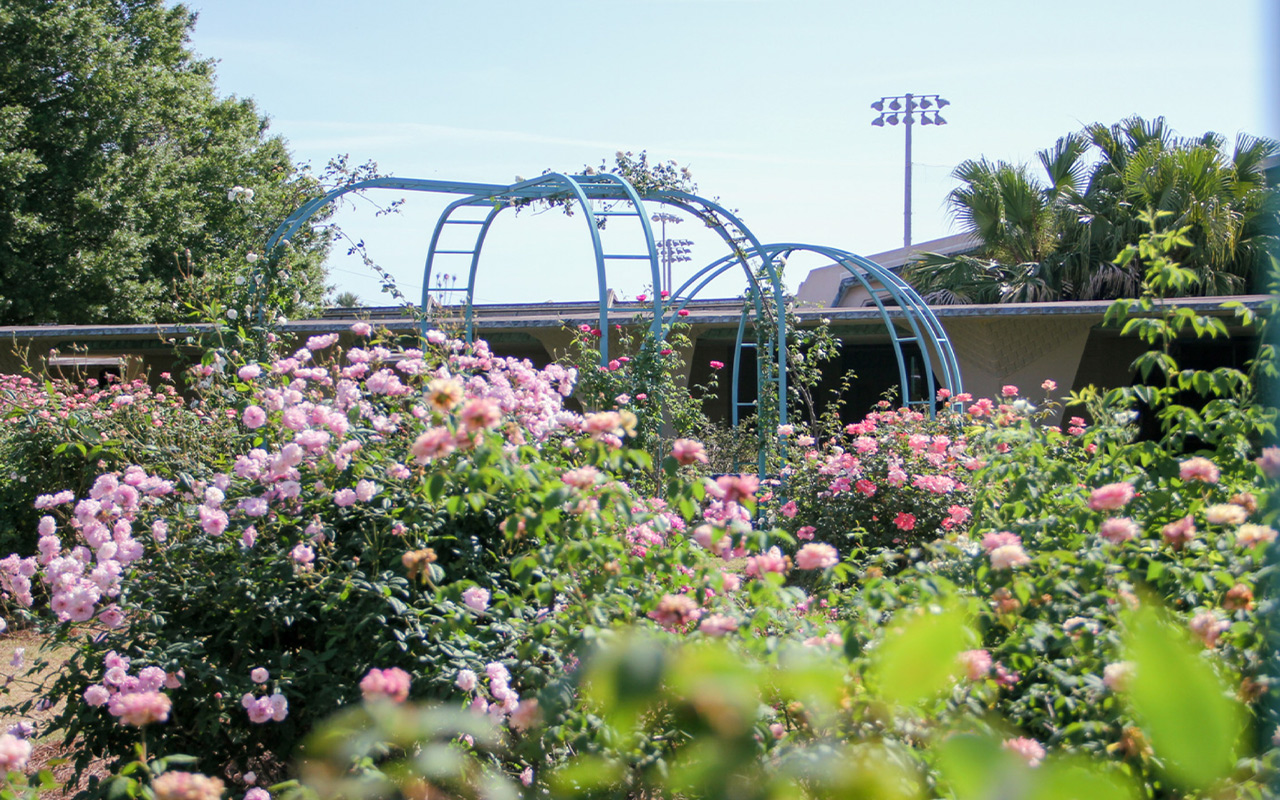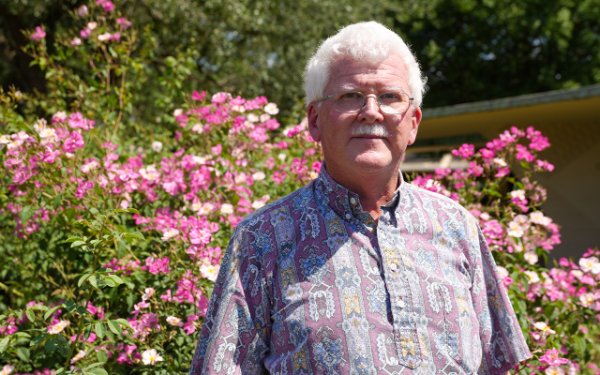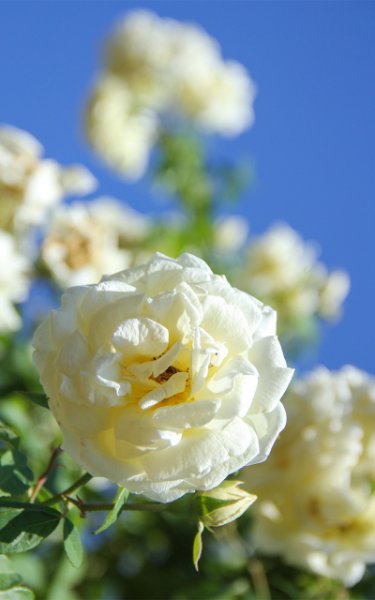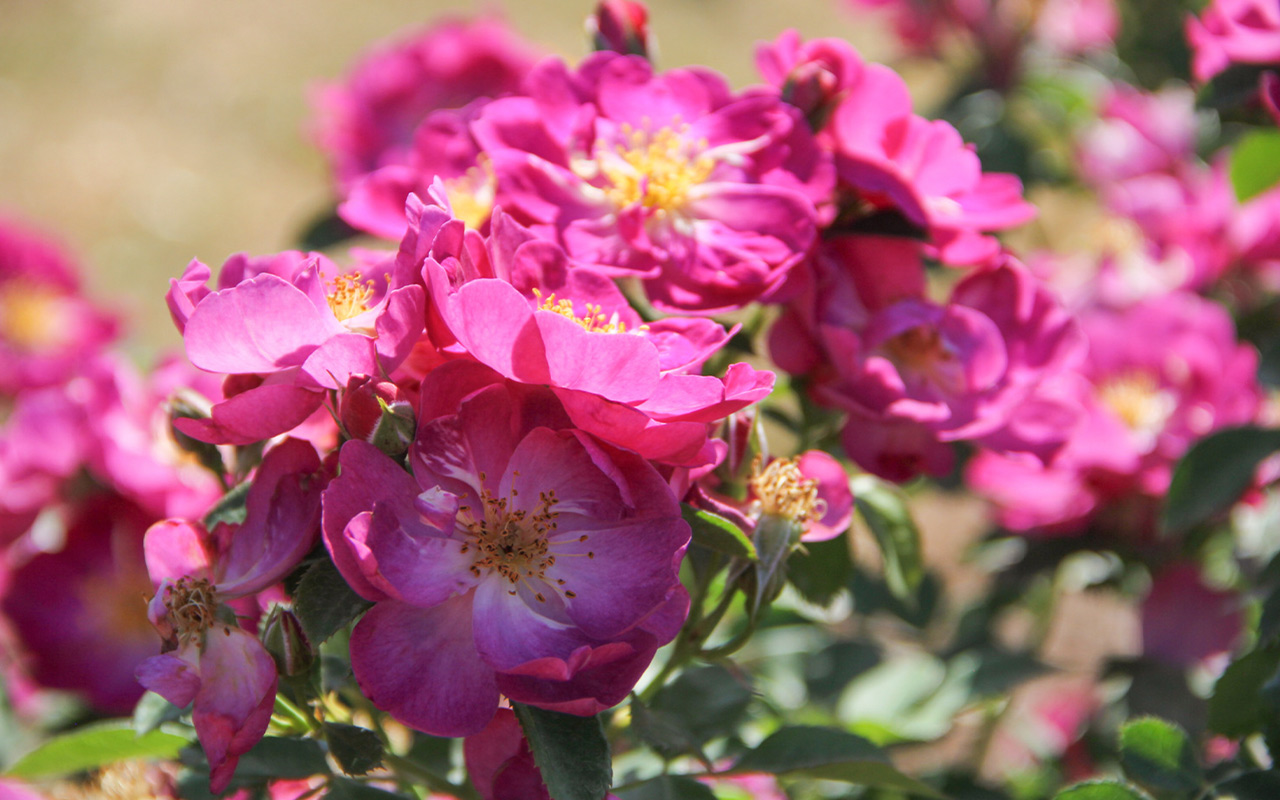
Not Just Garden Variety Roses
Apr 3, 2023

The beauty of the roses in Ruth's Rose Garden on the Florida Southern College campus is hard to resist.
However, those who are untrained in rose pruning are encouraged to look, but not touch so everyone who visits the campus can stop and smell the roses in their full glory.
“Ruth's Rose Garden is a prominent and beautiful landscape feature on the FSC campus, but most people don't know its ‘hidden purposes,’” said Professor of Citrus Science, Program Coordinator, and John and Ruth Tyndall Chair in Citrus Sciences, Dr. Malcom Manners, Ph.D. “With its 300 plants of nearly 200 varieties, it is one of the largest and most genetically diverse collections of roses in the Southeastern U.S.”

was honored as the “Great Rosarian of the World."
Students in the biology and horticulture programs have done numerous research projects over the years, studying the genetics and relationships of the roses, using DNA analysis methods. They have also studied bacterial and viral diseases of roses, methods of propagation, and other aspects of the roses, resulting in numerous scientific publications.
Ruth's Rose Garden houses FSC’s collection of roses certified to be free of rose mosaic virus, a common viral disease of roses in the United States. Since the late 1980s, the College has served as one of only two institutions in the U.S., the other is the University of California at Davis, that cure roses of the disease using a heat therapy method. The institutions then make those disease-free varieties available to the nursery industries.
Over the years, FSC has supplied more than 20 nurseries in the U.S., Canada, Bermuda, South Africa, and the UK with disease-free roses. The UC-Davis program has focused on recently introduced cut-flower types. The FSC collection is more geared toward historically important "heritage" varieties that have stood the test of time.

Florida Southern horticulture classes use the campus garden as a laboratory for teaching students how to plant, fertilize, prune, and otherwise care for the roses in the garden. Those skills can be easily transferred to other crops, and many students eventually manage landscape maintenance companies, large plant nurseries, and other companies where such skills are valuable.
“Roses tend to come in two flowering-pattern types, those that only flower heavily once per year, usually in the spring, and then not at all, or at most a flower here and there, for the rest of the year,” Dr. Manners said. “If all the flower buds are cut off of one of these roses, which unfortunately happened to ‘Pulich Children’ this year, there is a chance the bush will not flower at all for another year. The other type of rose is the repeat-flowering group, which tend to produce flowers throughout the year. From the date of pruning, it generally takes six to seven weeks for the next batch of flowers to open. So, if the buds are cut off such a bush, it will be about six weeks unto the plant will make flowers again.”
Since Dr. Manners and his students try very hard for a major, well-synchronized bloom this time of year in Ruth's Rose Garden, unauthorized pruning damages not only the individual bushes involved, but also the overall appearance of the garden. Also, an improperly pruned stem may die back and not flower at all. Therefore, the horticulture department asks that people not pick any flowers or take cuttings from the garden without their specific permission and supervision.
Dr. Manners is the resident expert who oversees the greenhouses, the citrus trees, and the beautiful rose gardens on the FSC campus. In 2013, he was honored as the “Great Rosarian of the World” after extensive and renowned work with roses.
